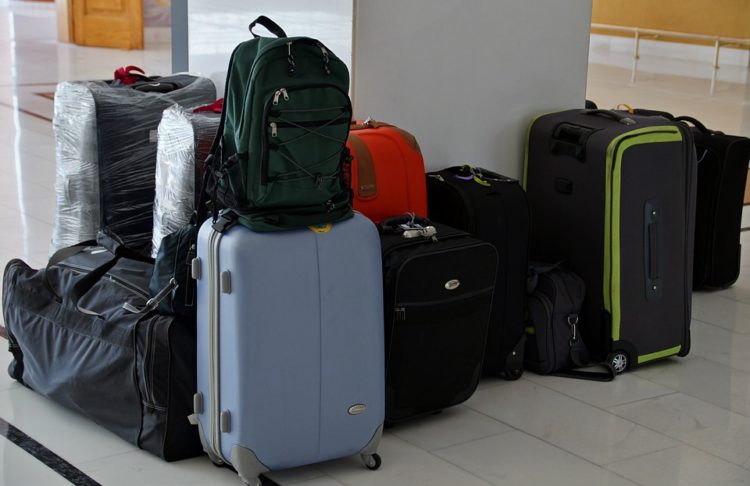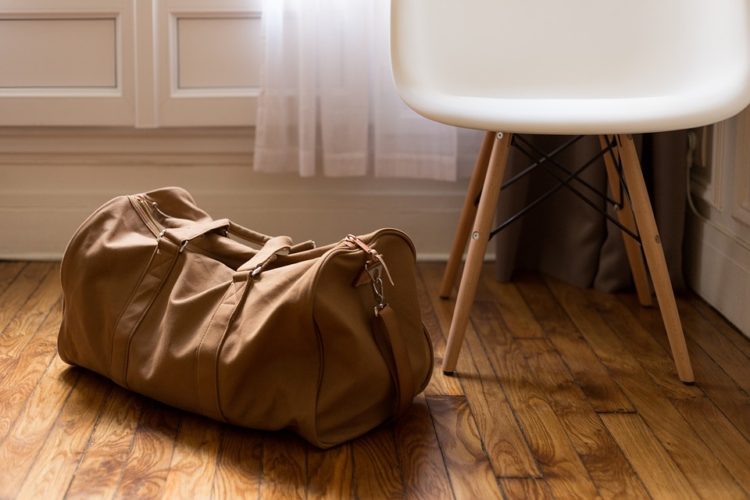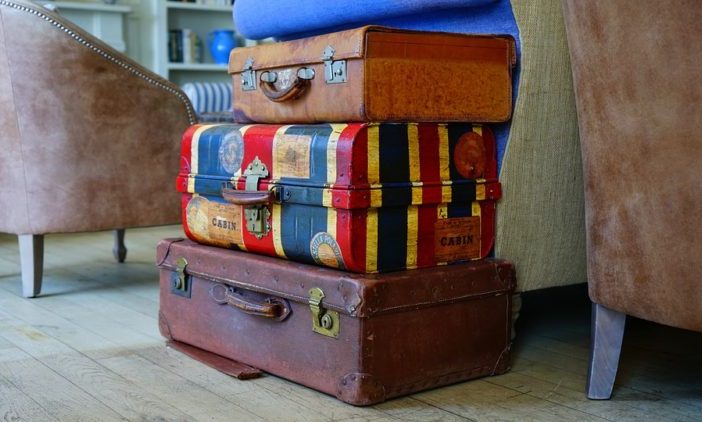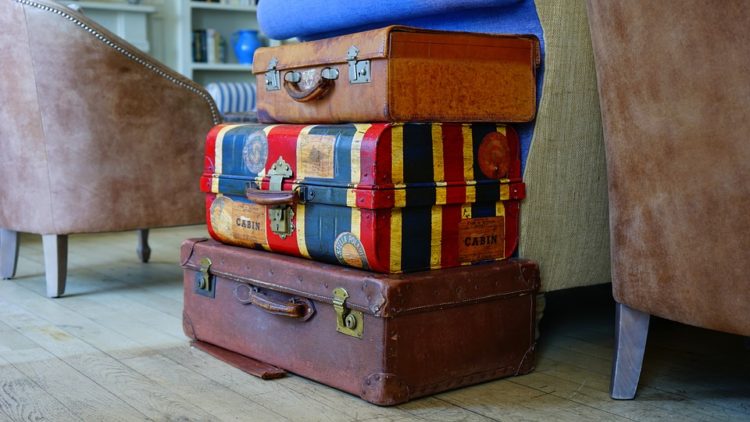When you decide to move abroad, it can be tempting to pack up your entire life and possessions to take with you to start your new life.
It’s not uncommon to see soon-to-be expats arriving at Heathrow with multiple overweight cases, as well as an absolute smorgasbord of added extras they couldn’t bear to leave behind. Sometimes, it really is everything but the kitchen sink.
But while it’s certainly tempting to surround yourself with familiar things when you’re taking a leap of faith into the unknown, having a shed load of possessions with you can actually slow you down when it comes to settling in to your new home.
Here are the reasons why you should never take more than one bag of possessions with you when you move abroad.
Having a Lot of Stuff is Stressful
Simplicity is the ultimate sophistication
– Leonardo da Vinci, 1452
From the great Stoic philosophers through Da Vinci to the celebrity minimalists of modern times, like Christian Bale and the late Steve Jobs, many wise men know that simplicity is the best course to take in life.
While taking all your clothes, knick knacks, books and kitchen equipment with you to your new country may sound like a good idea, all it’s going to do is hold you back.

Packing for a move abroad? You might be doing it wrong…
When you’re tied to your possessions, you’re effectively owned by them. They will decide what type of apartment you’ll rent, how long it will take you to unpack and where you can move to next. Instead of simply living space, your new home will become nothing more than storage space for your possessions.
Only take the items that are either totally necessary or bring you enough joy to justify their space in your life.
You’ll Save Money
A lot of people will be reading this and will wonder how on earth you’ll save money when you have to buy new things from scratch. Well, while those new things will need to be bought, their cost will be spread out over a period of time as you gradually find yourself acquiring only what you need, as and when.
If you bring all of your possessions with you abroad, you’ll find that they will cost you money just by passively existing, regardless of their initial purchase cost.
Here’s what you could find yourself spending money on:
- Overweight bags at the airport
- Shipping costs for any substantial items
- Storage costs while you search for a home
- Extra rent as you’ll need a bigger place to store everything
- Small costs to modify your possessions for your new home, like power adaptors, resizing and any shelving
Moreover, if you sell most of your possessions before you leave, you’ll have some extra spending money to buy any extra stuff that you need when you get there.

You Can Buy Everything You Need When You Get There
Unless you’re heading to a tiny island nation in the South Pacific without any urban metropolis, the chances are that you will be able to buy everything you need when you arrive in your new home.
If you take with you just one bag, containing only the possessions that you vitally need, you’ll be free to buy new stuff that fits in with your new life.
If you’re moving to Thailand, for instance, there’s no point in bringing any heavy jackets with you — instead, you can buy something locally to keep you warm if the temperature does happen to dip at any point. Be flexible and be prepared to buy new things as and when you need them.
Quite a lot of the time, you simply won’t know what you need in your new life before you actually start living it, and this is where many people make the mistake in over-packing and trying to be prepared for every eventuality.
When you find yourself doing this, take a step back and reassess the probability of needing the item you’re fussing over and make sure it passes the test of: is it necessary or does it bring me joy?
Do you agree with the ‘only one bag’ rule? Or are you a heavy packer?






